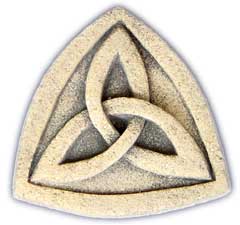too much grief...
Can grief, sorrow, guilt, shame debiliate?
I suspect so.
Should it?
I suspect so.
I got chatting with a two guys last week as we recounted a couple of stories from the stolen children; their stories edited by Carmel Bird. Our conversation picked up thoughts about Wadeye, Indigenous communties generally, Australia's history, Government resposes, reconciliation etc etc.
BUT, an interesting point came up. These stories can make us too emotional, too debilitated, too paralised... The shame, sorrow, guilt, and grief becomes to overwhelming that we simply cannot or will not be able to act in any helpful way.
Is this a valid position?
Arguments with a partner, parent, friend, god, child (I suspect), or dog even often leads us into the world of confession, forgiveness and reconciliation. We practice it everyday - or atleast probably have the opportunity too... but how good are we at it?
Who has the power to control the process? who makes the decision to how much is told or revealed... who makes the decision to when the level of dis-ease or uncomfortableness means that the story should be sensored, edited or simply turned off?
In a world that emphatically declares "I'm not bloody responsible" almost as often as we breathe, where is the room for sitting in the pain of anothers story? Enduring our own dis-ease, enduring our own self-centredness, enduring our own desires, to be present, willing, vulnerable, open... that we may experience a moment of transcendence, a moment of togetherness, a moment of where we do in fact reconcile, one with another, one with ourselves, one with our god.
I suspect so.
Should it?
I suspect so.
I got chatting with a two guys last week as we recounted a couple of stories from the stolen children; their stories edited by Carmel Bird. Our conversation picked up thoughts about Wadeye, Indigenous communties generally, Australia's history, Government resposes, reconciliation etc etc.
BUT, an interesting point came up. These stories can make us too emotional, too debilitated, too paralised... The shame, sorrow, guilt, and grief becomes to overwhelming that we simply cannot or will not be able to act in any helpful way.
Is this a valid position?
Arguments with a partner, parent, friend, god, child (I suspect), or dog even often leads us into the world of confession, forgiveness and reconciliation. We practice it everyday - or atleast probably have the opportunity too... but how good are we at it?
Who has the power to control the process? who makes the decision to how much is told or revealed... who makes the decision to when the level of dis-ease or uncomfortableness means that the story should be sensored, edited or simply turned off?
In a world that emphatically declares "I'm not bloody responsible" almost as often as we breathe, where is the room for sitting in the pain of anothers story? Enduring our own dis-ease, enduring our own self-centredness, enduring our own desires, to be present, willing, vulnerable, open... that we may experience a moment of transcendence, a moment of togetherness, a moment of where we do in fact reconcile, one with another, one with ourselves, one with our god.


0 Comments:
Post a Comment
<< Home